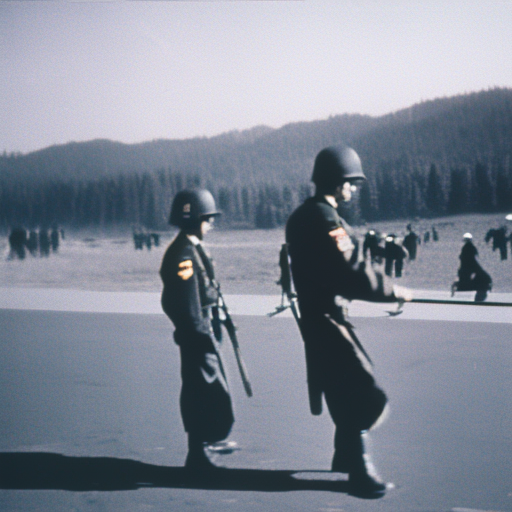The Korean War: A Conflict Divided
The Korean War, which lasted from 1950 to 1953, was a significant conflict that occurred on the Korean Peninsula. It began when North Korea, supported by the Soviet Union and China, invaded South Korea, which was backed by the United States and the United Nations. The war resulted in a stalemate and the division of Korea into North and South.
The Origins of the Conflict
The origins of the Korean War can be traced back to the end of World War II when Korea was divided into two separate zones of occupation: the Soviet-backed North and the U.S.-supported South. Tensions between the two sides escalated, and in June 1950, North Korea launched a surprise invasion of South Korea, aiming to reunify the country under communist rule.
The United Nations Intervention
The United Nations, led by the United States, swiftly condemned the invasion and authorized military intervention to support South Korea. A multinational force, predominantly composed of U.S. troops, was deployed under the command of General Douglas MacArthur. The UN forces managed to push the North Korean army back and recapture Seoul, the capital of South Korea.
Chinese Intervention and Stalemate
However, the tide of the war changed dramatically when China entered the conflict in October 1950. Chinese forces launched a massive counteroffensive, pushing the UN forces back to the 38th parallel, the original dividing line between North and South Korea. The war then settled into a stalemate, with neither side able to make significant gains.
The Role of the Armistice
Negotiations for a ceasefire began in 1951, and after two years of talks, an armistice was signed in July 1953. The armistice established a demilitarized zone (DMZ) along the 38th parallel, effectively dividing Korea into North and South. The war ended without a formal peace treaty, leaving the two sides technically still at war.
Human Cost and Legacy
The Korean War had a devastating impact on the Korean people. It is estimated that over 2.5 million civilians were killed or wounded during the conflict, and both sides suffered significant military casualties. The war also resulted in the separation of countless families, with many still longing for reunification to this day.
The Korean War had broader implications as well. It marked a significant escalation of the Cold War, with the United States and the Soviet Union supporting opposing sides in the conflict. The war also highlighted the limitations of the United Nations, as the Soviet Union boycotted the Security Council during the conflict, allowing the UN to authorize military action against North Korea.
Additionally, the Korean War had a lasting impact on the geopolitical landscape of East Asia. It solidified the division between North and South Korea, leading to decades of tension and occasional military clashes. It also set the stage for future conflicts in the region, such as the Vietnam War, as the United States became increasingly involved in containing communism in Asia.
In conclusion, the Korean War was a significant conflict that divided the Korean Peninsula and had far-reaching consequences. It began with a surprise invasion by North Korea and ended in a stalemate, with the signing of an armistice that established the division between North and South Korea. The war had a devastating human cost and played a crucial role in the broader context of the Cold War. Its legacy continues to shape the geopolitics of East Asia to this day.












